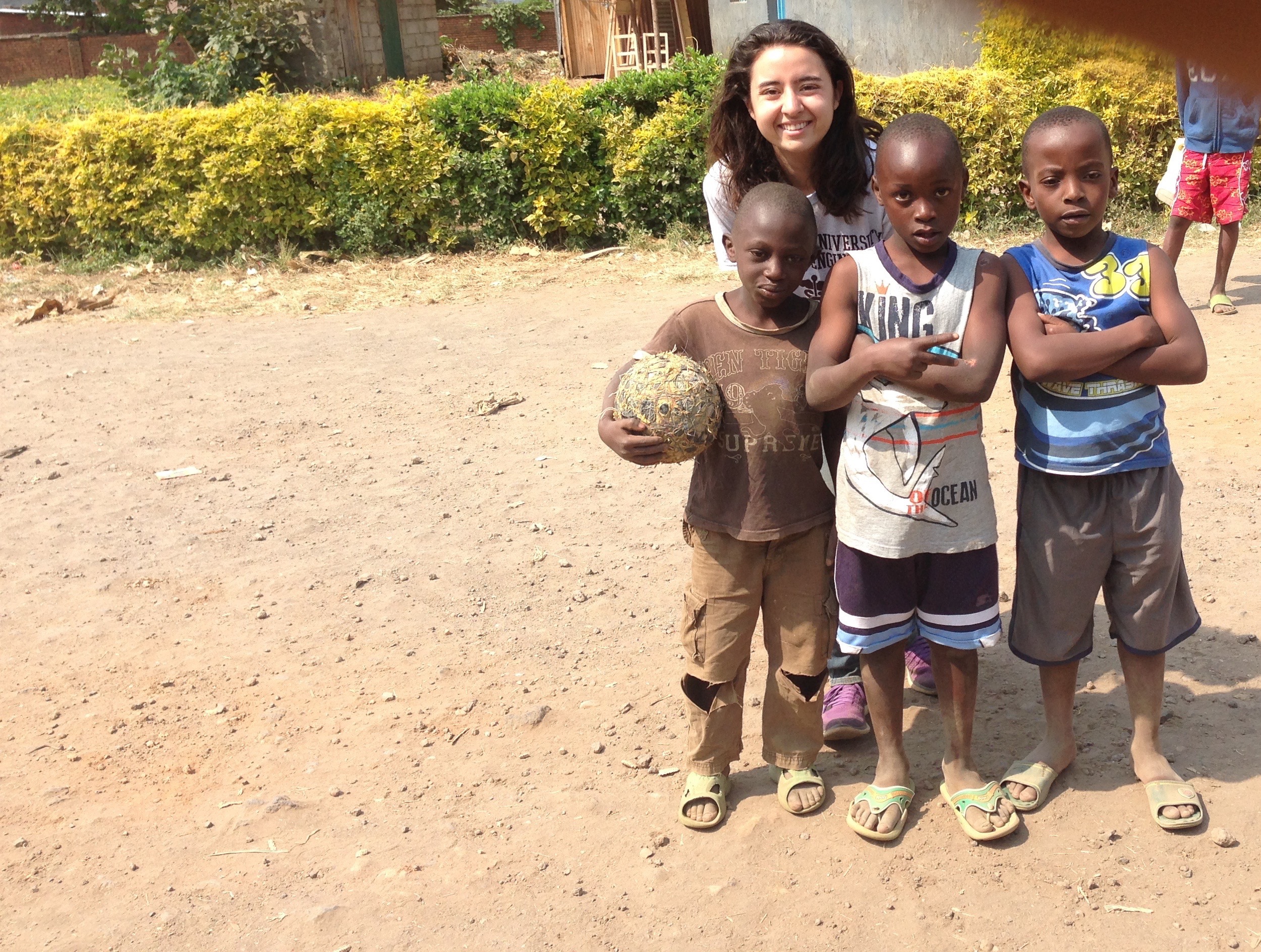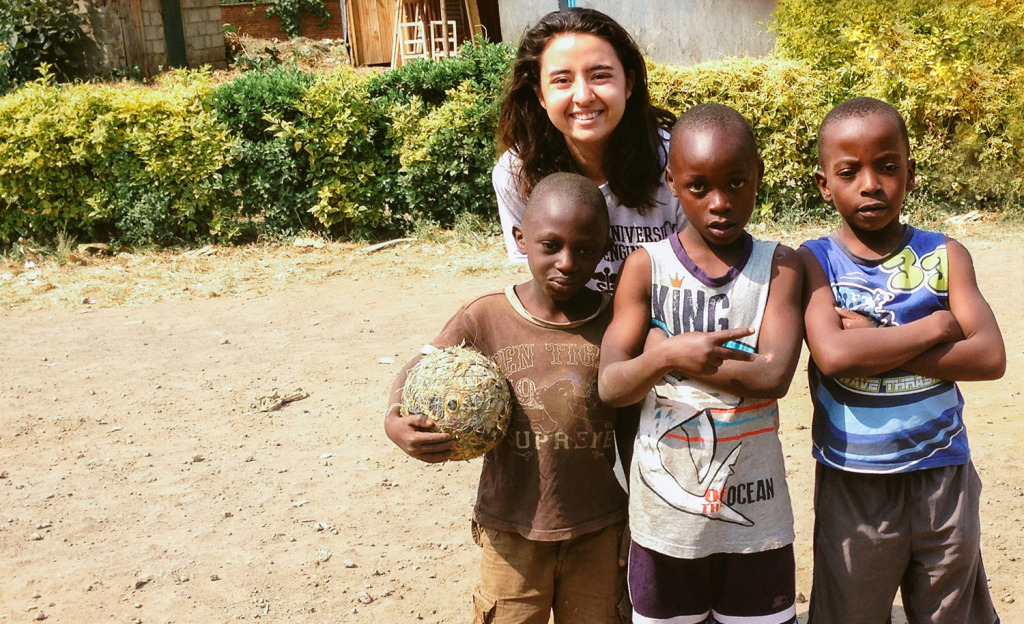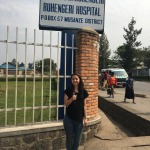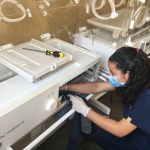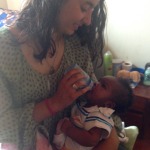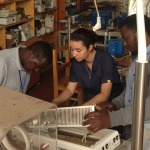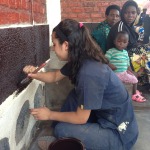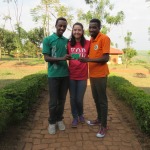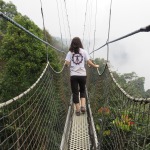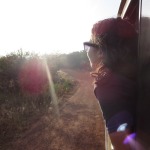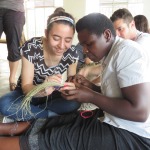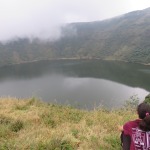By: Marifer Quevedo
While indulging in the latest fiction novel might be on most students’ to-do lists this summer, Harlingen High School South alum Adelina Cecilia Ramirez has opted to go in a different direction. The Texas A&M University Biomedical Engineering junior has dreamt about a summer program in Rwanda, Africa, since she first heard about it as a freshman. Two years later, after diligent planning and preparing, Ramirez has completed a nine-week program with the Engineering World Health Summer Institute in an area suffering from a severe lack of trained healthcare professionals and functioning medical equipment.
“I knew right away that I was being called to participate. I prepared heavily for my application since it is a very selective process,” shares Ramirez in her GoFundMe page. “I knew the traditional summer abroad was not enough. The Rwanda Summer Institute forces participants to be passionate about helping those less fortunate and to be more empathetic of those suffering. The program teaches participants to be even more focused in giving of self and using the experience to grow in charity, integrity, and global perspective.” Ramirez could not bypass the opportunity to make a direct impact helping the Rwandan community while gaining unique, hands-on experience in her field.
“She is a highly intelligent and wonderful student,” says her former Harlingen High School South biology teacher and Science Department Chair Mark Conway. “Addie would always ask very thought provoking questions that showed high-level thinking skills.” He has no doubt Ramirez will succeed in any endeavor she pursues.
Engineering World Health (EWH) is a global organization inspiring the biomedical engineering community to improve healthcare delivery in developing areas. The EWH Summer Institute, in partnership with Duke University and Texas A&M University, selects highly skilled engineering and science students and deploys them to developing countries, either Nicaragua, Tanzania, or Rwanda, to provide assistance with critical medical equipment repairs.
“We have been quite concerned with how things are around the world and with how she was going towards a part of the world closer to civil unrest,” says her mother, Selma Ramirez. “She definitely knows the risks and decided it was worth it in order to help others through the field she has chosen. We told her she’d have to fund the Summer Institute herself, hoping she would change her mind. We were thinking about her safety. As you can see, this sort of backfired on us.”
The Rwanda Summer Institute holds a $12,295 price tag, including tuition, housing, airfare, meals, and other expenses. Ramirez was able to receive $7,500 in scholarships from A&M and the EWH, as well as $2,710 in private donations. She turned to her graduate school savings account for the remaining balance.
Ramirez departed towards Kilgari, Rwanda, on May 29 where she met her host family. The Rwanda Summer Institute consists of up to 22 participants who upon arrival attend classes in the local languages and undergo rigorous training in the diagnosing and repairing of damaged biomedical equipment.
Ramirez quickly realized the language courses were of utmost importance in order to achieve effective communication in the hospital and around town. She describes how she participated in a daily four-hour course in Kinyarwanda, the native language, followed by intensive instruction on biomedical equipment including electrocardiographs, pulse oximeters, fetal monitors, infant incubators, and ventilators.
“She loves the biomedical engineering field,” explains her mom. “It is so intertwined with health services, that she’s even contemplating medical school after graduating in May 2018, perhaps becoming a medical doctor. She’s hoping Rwanda will help her reflect on a vocational direction.”
After spending a month in training, Ramirez and two teammates traveled to Ruhengeri, a smaller city in the Musanze district two hours away from the Rwandan capital. They were assigned one of ten EWH partner hospitals, where they worked closely with an EWH trained biomedical equipment technician (BMET).
Rwanda is experiencing a physical and psychological recovery from the repercussions of a 1994 civil war. Consequently, hospitals and BMETs are burdened with an overload of work and limited resources. At Ruhengeri Hospital, Ramirez installed and repaired medical equipment, completed inventory reports, attended staff meetings, and collaborated with nurses and doctors. Ramirez and her team were ultimately tasked with assessing the needs of the hospital and developing an innovative design idea that could be implemented to improve healthcare delivery to the under-resourced area.
The unique opportunity allowed Ramirez to make an immediate impact on the Rwandan community while gaining valuable clinical experience and cultural appreciation. She recalls an emotional visit to the Nyamata Memorial site, a church commemorating the Rwandan genocide in 1994. Ramirez provides a detailed account of her visit in a blog she maintained during her stay in Africa.
“The entire experience proved that the Rwandan people have shown the ultimate example of forgiveness,” she writes. “I was inspired, not only to forgive, but also to share, love, and, most importantly, be grateful for anything and everything I have.”
For an in-depth view into her fascinating journey, visit Ramirez’s blog, Addie’s Adventures in Africa, where she has chronicled her entire African experience.

